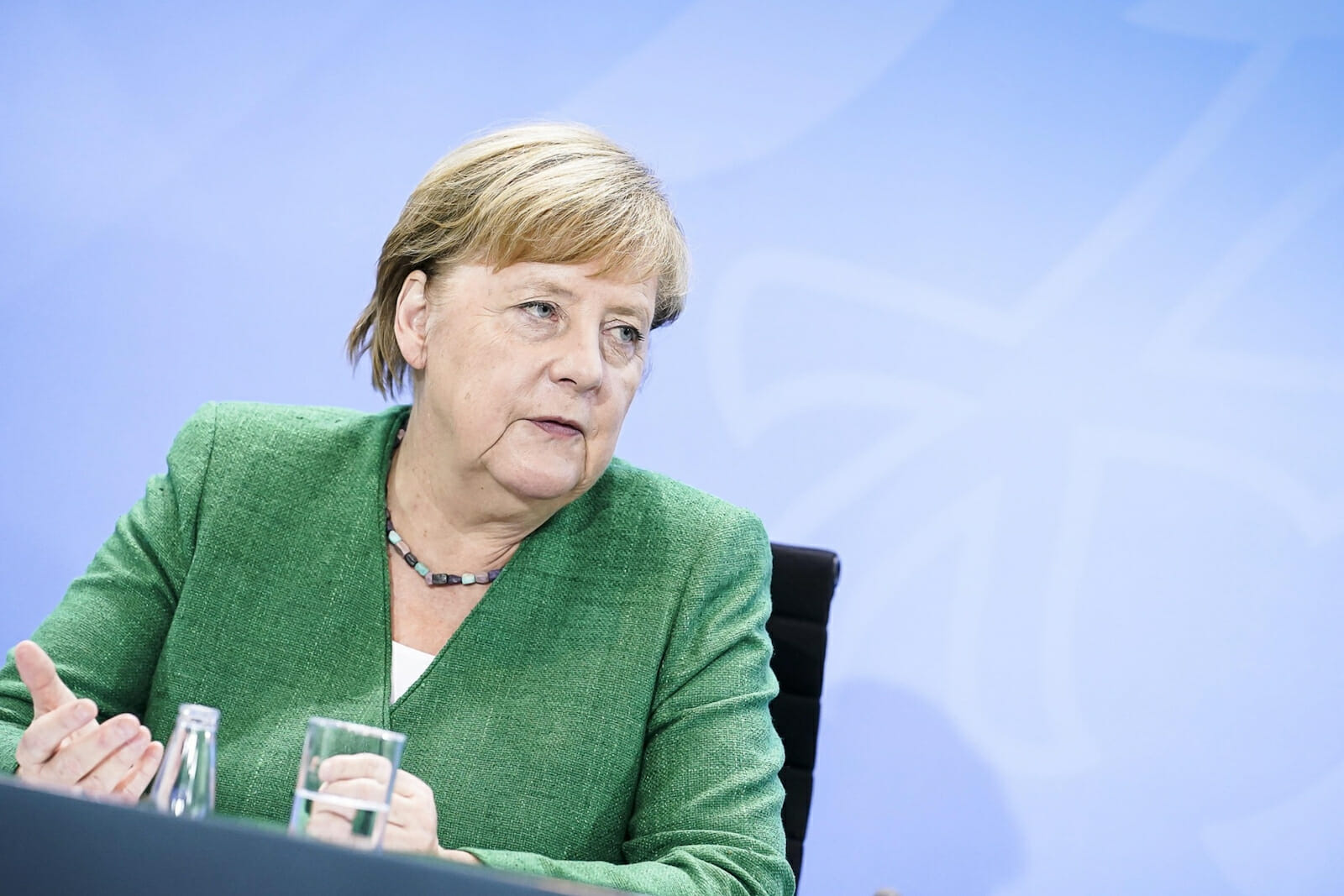
What Merkel’s Pandemic Response Means for the EU Political Landscape
The ongoing pandemic could be a game-changer to Europe’s political chessboard. Although economic slump and growing unemployment are fueling populist sentiments, ultimate success in responding to COVID-19 may decisively weaken nativist groups in the medium term.
Five years after German Chancellor Angela Merkel’s “We can do it” escorted the 2015 refugee crisis, the rise of reactionary parties across the EU continues to be a major challenge to policymakers in Brussels. The upsurge of nationalist sentiments across the continent complicates policy coordination, while high unemployment rates and a thorny path to economic recovery risks further emboldening Eurosceptics and populists of all stripes.
Recent waves of “anti-corona” protests that have hit major European capitals seem to show that the EU’s political landscape may indeed further suffer from surging reactionary views. Nonetheless, proper responses to the pandemic and correct reactive policy frameworks that will become more evident to the public in the months to come, and as the economic recovery picks up, could trademark pro-EU democracy forces.
The medium-term impact of Merkel’s COVID response in Germany could be particularly illustrative in predicting the future trajectory of the political climate in the country and across the EU.
Internationally, Berlin’s coordinated response and early opting for strictly science-based and rigorous communications was lauded. Several months further in, Germany remains rated highly for displaying among the best crisis responses across the EU. Merkel’s conduct in particular is seen to have played a major role in what has also deepened the country’s already strong international standing.
Staggeringly, particularly to foreign observers, push-back against Merkel’s course has been flaring up from opposing groups within Germany. Owed to a traditionally strong sense for freedom of opinion and a somewhat confused global information environment, Germany faces a bizarre amalgamation of a small, yet vocal minority of protesters.
In early 2020, Germany was at a high risk of becoming a pandemic hotspot. Located at the heart of Europe with a population of around 83 million people, the country’s deep integration into global supply chains and touristic travel threatened to cause a major spike in infection rates that would have overwhelmed the German healthcare system.
When the COVID-19 outbreak arrived in global awareness earlier this year, Merkel acted by taking to the public with a distinctly pragmatic and above all, straight-forward approach. Marking her administration’s first measures of shutdowns and physical distancing in an exceptional TV appearance, Merkel, a former scientist with a Ph.D. in quantum chemistry, did not leave any room for doubting the gravity of the health and systemic threat the virus was presenting. “This is serious,” she delivered. “Take it seriously,” she pleaded.
With confidence in the German public’s reason and its ability to comprehend the science underpinning her course from the onset, Merkel called for unity and solidarity, essentially sharing the responsibility for an appropriate crisis response with the German population itself.
An initially leaked, and in the meantime, downloadable scenario paper by Germany’s Ministry of Interior, shows that Berlin’s bluntness was no misunderstanding, but part of a consciously adopted communications strategy supporting one central objective: “To avert the worst-case scenario of more than a million dead in 2020 in Germany alone, should no measures be taken at all.” Developed by experts in healthcare, crisis management, administration, and economy, the document advises for “the worst-case and its consequences for the population, to be made unmistakably transparent and clear.”
Germany’s openness in highlighting the grim realities swiftly drew criticism, particularly among those prioritizing the economy. Merkel’s leaning on experts’ assessment of potential infection rates of 60 percent to 70 percent was dubbed “firing a bazooka at the economy.” Leveraging understandable emotions of uncertainty and obstructing more level-headed debate on democratic rights versus public health and economy, right-wing populists as the Alternative for Germany (AfD) or the Reichsbürger movement used the momentum to multiply their worldviews and take aim at the political order, Merkel in specific.
The EU’s powerhouse was not oblivious to the economic risks. Berlin’s scenario paper underscores them in no uncertain terms and acknowledges the territory unchartered. Yet, it was seen as vital to firmly prioritize containing the pandemic, not only in the interest of public health, but also for German and European stability.
While reactionary forces have latched onto the opportunity to further radicalize its electorate, the majority of Germans clearly pursued another direction. According to a survey commissioned by public broadcaster ARD and conducted by Infratest dimap, 72 percent of those polled said they are satisfied with the government’s handling of the crisis and only three out of 10 are critical of its course. Overall, the Merkel administration’s approval ratings are up. (While in early March, six out of 10 Germans said they disapproved of the government’s track record).
Germany secures multiple advantages compared to others: a well-funded health system and a technological edge. Its spending on healthcare per capita is among the highest in the world, with Germany having the second most critical-care beds per capita in the EU. But that alone could not have delivered without solid political leadership, commitment to public trust, and the willingness for collaboration on local, federal, and European levels.
Merkel’s collectedness, realism, and empathy earned her and the Christian Democratic Union (CDU) skyrocketing approval ratings. In August, Chancellor Merkel scored a rating of 64 percent, 11 percent more compared to the previous month.
So far, Merkel’s government managed to uphold its initial success. Rising infection rates this summer confirm that Germany’s initial achievement in bending the curve has only been the first step, and the Chancellor’s words of caution were well-warranted. With the government’s very candid communication from the outset, the German public is likely well-equipped to correctly charge the latest spikes in infection rates to negligence, fact-denying, and calling for disregard of protective rules. Europe’s far-right indeed is taking a severe blow to its credibility as the pandemic progresses.
The opposition’s fundamental lack of serious political alternatives and trustworthiness has been outplayed by Berlin’s robust pandemic response itself. They have been painfully exposed by their own inability to offer a highly unsettled public anything else than appeal to populism and baseless conspiracies that fuel the core of their supporters to fiercely protest against “the global vaccination-mafia,” pushing away those who supported them in the past.

